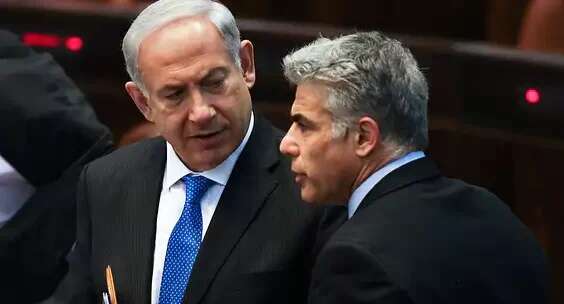Israel gave its preliminary nod on Sunday to a draft US-brokered deal demarcating a maritime border with Lebanon that could lead to possible profit-sharing from future gas production by Beirut in a long-disputed Mediterranean prospect, triggering a political debate just a month before Israel heads to the polls.
Hoping to defuse one source of conflict between the enemy countries and perhaps prod them toward accommodation, US. envoy Amos Hochstein last week submitted a new proposal that would pave the way for offshore energy exploration.
Follow Israel Hayom on Facebook, Twitter, and Instagram
Beirut is studying the 10-page draft, details of which have not been made public. Iranian-backed Lebanese Hezbollah, which has clashed with Israel and previously voiced suspicions over any demarcation deal, called the draft "a very important step".
Israeli approval of the draft awaited legal review, Prime Minister Yair Lapid told his cabinet at its weekly session. "But," he said in televised remarks, "just as we insisted from day one, the proposal fully preserves Israel's national security interests, as well as our economic interests".
Lapid appeared to float an arrangement whereby gas would be produced by a company under a Lebanese license in the disputed Qana prospect, with Israel receiving a share of revenues.
"We have no opposition to an additional Lebanese gas field being developed, from which we would of course receive royalties due us," he said. "Such a field would weaken Lebanese dependency on Iran, restrain Hezbollah and bring regional stability."
Lapid heads a caretaker government ahead of a Nov 1 election. His challenger, conservative ex-Prime Minister Benjamin Netanyahu, has argued the Lebanese deal could benefit Hezbollah, and accused Lapid of evading parliamentary scrutiny. "Lapid is making a humiliating surrender to [Hezbollah chief] Hassan Nasrallah," Netanyahu said on Sunday., "He is doing this without a referendum or a Knesset debate; he is giving away sovereign areas with a massive gas field – which belongs to you, the Israelis." Netanyahu went on to say that if Lapid manages to "pull a fast one" by approving this without triggering a national referendum, we won't consider it binding.
Gideon Saar, Lapid's justice minister, acknowledged that such deals would generally be brought before the Knesset. However, Saar told Kan radio, "there are exceptional cases where – and this requires the agreement of the justice minister – there is an exemption from the mandatory submission. I do not want to be drawn on this until we understand matters fully."
Subscribe to Israel Hayom's daily newsletter and never miss our top stories!




